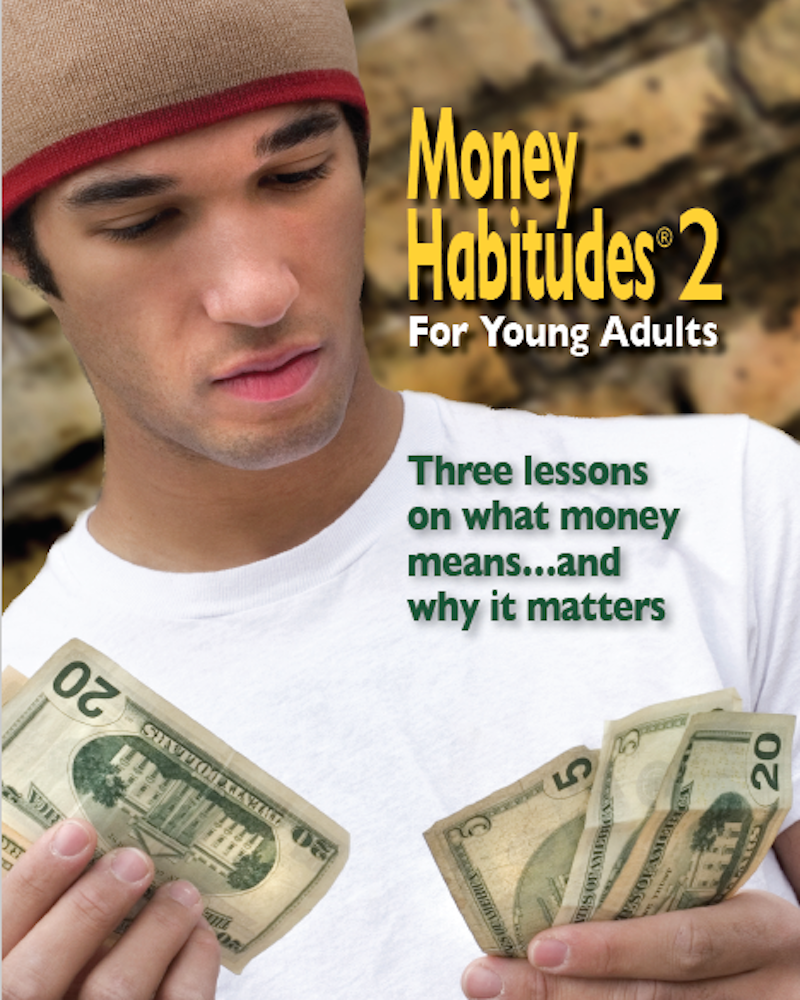
Program Length: 3 Lessons
Age Group: 16-24
Authors: Syble Solomon and Jessica Pool
What Money Means, and Why it Matters
Money Habitudes 2® is a quick program introducing vulnerable youth to the non-technical, human side of money – a critical element of successful money management. These three practical lessons about the psychology of money are an essential precursor to financial literacy education for at-risk youth. The lessons are ideal for grant funded and community settings.
Note: Training is not required but encouraged to facilitate Money Habitudes for Young Adults. There is an On-Demand option for the 3-hour facilitator training available starting at $49 here.
Overview
Money Habitudes 2® contains 3 active lessons that explore how hidden attitudes affect the ways people – especially those with few financial resources – actually behave around money. Topics include:
- Why money management is important in our lives.
- Different approaches to handling money –spontaneous, practical, carefree, security, generous, and more.
- The symbolism of money– as a sign of power, status, love, safety, independence, loyalty and more.
- The influence of family, media, culture, and life events.
- The advantages and challenges of different approaches to money.
- The interplay between money and relationships.
A key goal is helping young people identify their personal financial patterns – and why these matter. The award-winning Money Habitudes® card game, integrated into the lessons, makes the process fun and engaging.
Money Habitudes 2® is written specifically for at-risk or low resource youth in community programs, including pregnancy prevention, teen parenting, and workforce development. The scenarios are realistic, reflecting the students’ limited resources and lack of financial know-how.
Ideal for grant-funded programs, Money Habitudes 2® is practical, affordable, and easy to teach. Course materials include a teacher’s manual with 3 lessons, reusable card decks (one per student) and reproducible work sheets.

Syble Solomon, M.ED
Syble Solomon, M.ED is the creator of the acclaimed Money Habitudes® card games and an international speaker on the psychology of money. Her professional experience includes more than twenty five years as an educator, university instructor, and executive leadership coach. She was named Educator of the Year by the Association for Financial Counseling and Planning Education, and earned the Smart Marriages’ 2009 Impact Award for creating a tool that fosters healthy relationships. Introduced in 2003, Syble developed the original Money Habitudes® self-assessment cards as a simple, non-threatening way for adults to discover their attitudes about money and see how these affect their relationships and life goals. Since then, the cards have been adapted for specialized audiences including teens, young adults and couples. Endorsed by the Institute of Consumer Financial Education and numerous other independent groups, the cards are used by educators and counselors in a wide range of settings worldwide.
Jessica Poole, MS
What Others Have to Say
Lois A. Vitt, Ph.D., Founding Director,Institute for Socio-Financial Studies, Charlottesville, VA


 An award-winning teacher and communication specialist, Jessica Pool, MS, joined The Dibble Institute
An award-winning teacher and communication specialist, Jessica Pool, MS, joined The Dibble Institute